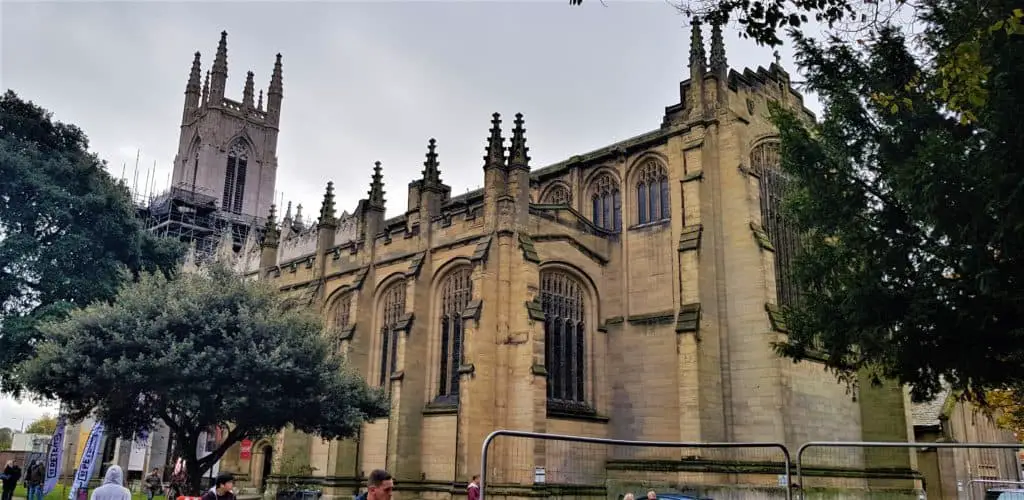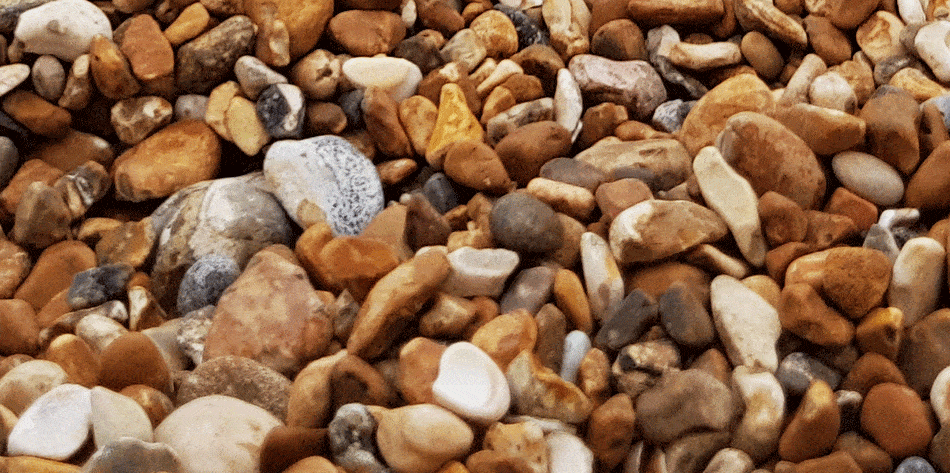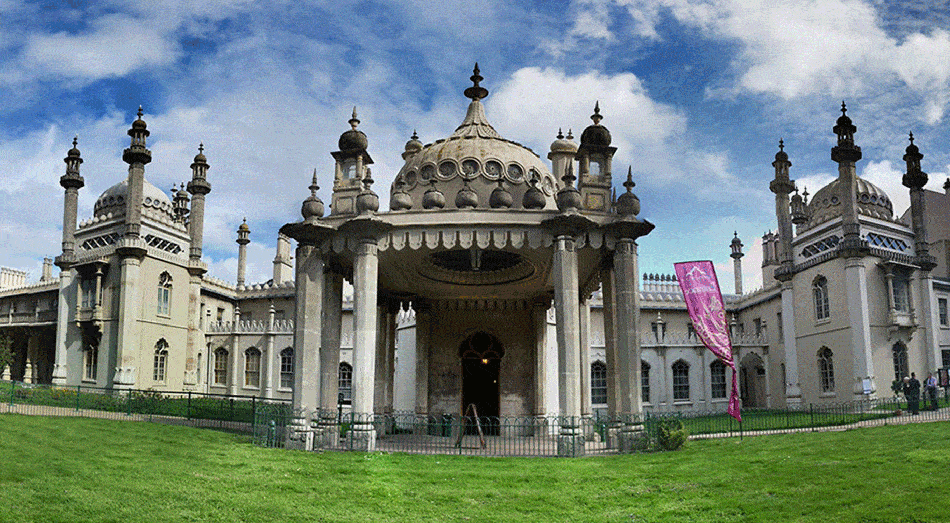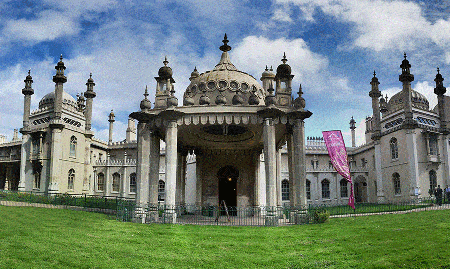Is Brighton a city? Yes, and has been since 2000. When Queen Elizabeth II, declared Brighton to be a city during the Millennium celebrations
Brighton was once a seaside town on the south coast of England. Then in 1997, its local government authority merged with its next-door neighbour’s authority in the town of Hove. It was this united authority of Brighton & Hove (often referred to as “Brighton”) that would go on to be a city.
But the full answer is a little more complicated and a bit more interesting too. Let’s take a look at how Brighton became a city.
How is Brighton a City without a Cathedral?
It’s a common myth that a city must have a cathedral in order to be a city. In fact, “city status” is conferred by the queen. It has nothing to do with whether a city has a cathedral or not.
There are 18 towns in the UK that have a cathedral but no city status and these are Blackburn, Brecon, Bury St. Edmunds, Clogher, Downpatrick, Dromore, Enniskillen, Guildford, Millport, Oban, Rochester, Southwark, and Southwell. This is in contrast to the 46 cities with cathedrals.
Interestingly, Rochester was once a city and had been since the year 1211 but surrendered that status when the local government decided not (or possibly forgot) to reconfirm being a city in 1998.
There are also 18 cities without a cathedral and Brighton finds itself in the company of Bath, Cambridge, Hull, Lancaster, Leeds, Newry, Nottingham, Plymouth, Preston, Salford, Southampton, Stirling, Stoke, Sunderland, Swansea, Westminster and Wolverhampton.
The idea that city status is connected to having a cathedral appears to have come about in the 1540s when Henry VIII founded new cathedral dioceses in 6 towns and issued each town city status by means of letters patent.
Does Brighton have a Cathedral?

However, if you ask a local “Does Brighton have a cathedral?” They might tell you in hushed tones that many folks consider St. Peter’s Church to be as good as a cathedral.
It’s certainly one of the finest pre-Victorian Gothic Revival-style churches in the country and was the official parish church of Brighton from 1873 to 2007.
Why is Brighton a City?
So, the question then becomes, “Why is Brighton a city?” Well, for the year 2000, it was decided that every town with ambitions to become a city could apply to be one.
Blackburn, Blackpool, Brighton & Hove, Bolton, Chelmsford, Colchester, Croydon, Darwen, Doncaster, Dover, Greenwich, Guildford, Inverness, Ipswich, Luton, Maidstone, Med, Milton Keynes, Northampton, Reading, Shrewsbury and Atcham, Southend-on-Sea, Stockport, Swindon, Telford, Warrington, Wirral and Wolverhampton all quickly sent in their applications to become cities.
They were judged, apparently, on their merits in three areas: notable features, historic and/or royal features and their “forward-looking attitude”. That third category seems to be one of those neatly unquantifiable things that British bureaucracy absolutely loves to use so they can stamp, “computer says no” on things.
This process took place again in the year 2012 for the Queen’s Diamond Jubilee. Interestingly, the three cities chosen in 2012, Chelmsford, St Asaph and Perth, had not applied in the year 2000.
When did Brighton Become a City?
Fortunately, Brighton, along with Inverness and Wolverhampton, was facing in the right direction and was approved for city status. Queen Elizabeth II formalized this during the celebrations for the Millennium in the year 2000.
What makes a City a City?
There are 69 cities in the United Kingdom, 51 in England, 6 in Wales, 7 in Scotland and 5 in Northern Ireland. What they all have in common is that the Queen (or another British monarch) has granted them city status.
The funny thing is that becoming a city is mainly a vanity status. Cities receive no special consideration from the government, are offered no special privileges under the law, and in fact, aren’t even (as we have already seen) associated with having a cathedral.
There are only 2 cities that have lost their city status, Rochester and Elgin. Elgin still considers itself to be a city and the local football team is called Elgin City, but it has no such status under the law. There was a third city in this category, Perth, but as we’ve already seen Perth won back its city status in 2012.
Interestingly, having the word “city” in a place’s name does not make it a city so White City, for example, is not a city.
Despite all of this, “city status” is considered by many town leaders to be highly prestigious and as you can see from the number of places which applied for this status back in the year 2000, it’s highly sought after. It will be interesting to see how many more British towns are given city status in the future.
Brighton’s status as a city, however, is for the foreseeable future completely secure. We imagine that if there is paperwork to be filled to maintain this status that Brighton & Hove Council will be on top of this to avoid sharing Rochester’s ignominious fate.
What is the Brighton and Hove Population?
Brighton and Hove is a big city by British standards but by global standards, in the age of the megacity, it’s not huge.
In 1991, the population of the area was estimated to be 240,534 by the Office for National Statistics (ONS) and by 2018, it had risen to 290,395. These seem to be curiously precise estimates to us but the ONS is the most reliable data source available.
This means that Brighton wouldn’t qualify for the World’s Largest 1,000 Cities by population. 1,000th place on that list goes to Rasht in Iran with a population of 519,481! Tokyo, which tops the list, has over 34 million people living within its borders according to Wikipedia.
What is Brighton Most Famous for?
The city of Brighton is famous for many things and we’d like to share a few of the highlights with you:
The Pebble Beach

Brighton Beach is famous for its pebbles though it is technically still possible to build a sandcastle on the beach. It’s one of the cleanest and best-loved British summer destinations. It has the coveted Blue Flag status for a quality endorsement too.
Brighton Pier
Brighton Pier is chock-a-block with fun for kids and any family considering spending time in Brighton is going to want to check out the dodgem cars, haunted house, and the stalls selling rock and candy floss.
The Royal Pavilion

Most people think of the Royal Pavilion as Brighton Pavilion and it is without a doubt the iconic symbol of the city. It was originally a seaside retreat constructed for George, the Prince of Wales, who would become Prince Regent in 1811.
If you look at it and think, “That’s a bit like the Taj Mahal”, that’s because it was built in the Indo-Saracenic architectural style. The minarets and domes were designed to give the building an authentically colonial feel.
Tolerance
Brighton is the UK’s happiest and hippest place to live according to many and it’s certainly the nation’s most gay-friendly city with more than 10% of the community identifying as LGBT.
There is a huge gay pride festival, Brighton Pride, which is held every year in August and it’s the biggest event of its kind in the entirety of the UK.
The Brighton Fringe
You may have heard of Edinburgh’s Fringe Festival, but you may not know that Brighton’s Fringe runs all year round, though its main events are in May and are designed to showcase home-grown talent and nearly 30% of all their events are run by and star artistic folks from Brighton & Hove.
However, it’s completely open access and no matter where you are from if you think you have something artistically stunning to share with the world – the Brighton Fringe wants to hear from you.
Brighton Festival
The Brighton Festival is the largest annual multi-arts festival in England, and it runs through the majority of May each year. It was established in 1967 and brings in some of the most exciting artists in the country and from farther afield.
The Veteran Car Run
Billed as the “world’s longest-running motor event,” The Veteran Car Run commemorates the “Emancipation Run” of 14 November 1896 which raised the speed limit on the roads from 4 miles an hour to 14 miles an hour and ended the requirement for a man on foot to accompany each car.
It ran from the Metropole Hotel in London to the Metropole Hotel in Brighton. Each year this journey is recreated by the most amazing veteran cars. It’s an event you’ll never forget if you’re in Brighton during November.
Conclusion
Why is Brighton a city? Because Queen Elizabeth II decided that it was and made it official in the year 2000 as part of the Millennial celebrations but as we have seen, this was a decision made on merit. Brighton is a vibrant and exciting city with a deserved reputation for creativity, family fun and tolerance.


